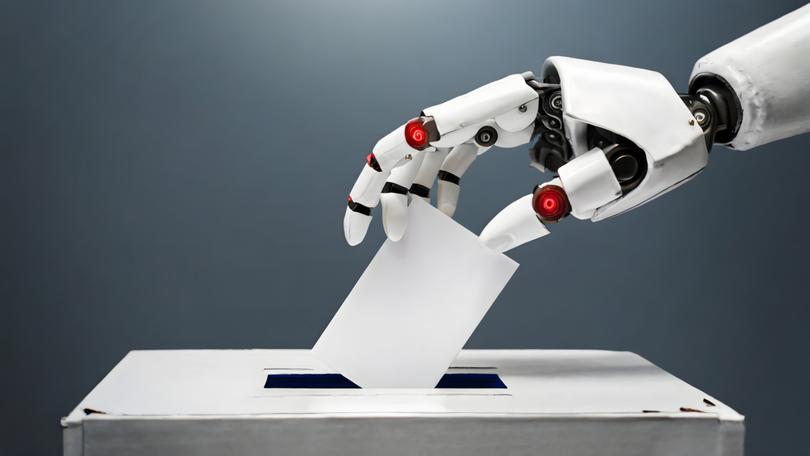KATINA CURTIS: Australian laws are not prepared for the rise of misinformation and disinformation from AI
KATINA CURTIS: Australian laws are not prepared for the rise of misinformation and disinformation and the potential for that to be supercharged by artificial intelligence as we head into election season.

“How do you know that?”
This question is frequently heard in my household as the children eagerly produce some dubious fact (or dodgy joke from Grandpa).
It’s a question that Australians beyond the confines of my house need to get used to asking themselves amid the rise of misinformation and disinformation and the potential for that to be supercharged by artificial intelligence.
Sign up to The Nightly's newsletters.
Get the first look at the digital newspaper, curated daily stories and breaking headlines delivered to your inbox.
By continuing you agree to our Terms and Privacy Policy.Australian laws are certainly not prepared for this as we head into election season.
We should be seeing the long-promised upgrade to electoral laws by September but these are expected to deal mainly with campaign financing and donation transparency.
AI is not on Special Minister of State Don Farrell’s priority list, despite the urging of some colleagues, although he has previously flagged that it is an issue that requires consideration.
Australia’s deputy electoral commissioner Jeff Pope says at this stage, everyone should be alert but not alarmed — yet.
Much has been made of this year being one of the elections, with a significant portion of the world’s population heading to the polls, including in the UK, France, India, the US, Indonesia, the European Union, South Korea and South Africa.
Tech giant Microsoft warned earlier in the year it feared Chinese state-backed cyber groups would seek to disrupt high-profile elections with AI-generated material and disinformation.
So far, while AI and deep-fakes have played a role in some of these campaigns, they have not changed outcomes.
Electoral integrity in the UK and France may have benefited from their leaders calling snap polls, meaning there wasn’t a long time for any campaigners contemplating dodgy tricks to prepare.
A few fake videos circulated early on in the UK of Labour candidates using crude language or calling their opponents names.
The electoral commission there responded with effectively a voluntary code of conduct, asking all campaigners not to mislead voters and to consider how their material would be received especially if it used generative AI.
Deep fakes were also seen in Korea, including viral videos of its president supposedly admitting corruption and criticising opponents.
Authorities put in place a short-term ban on election-related deep-fake videos, photos and audio — but then had to hire hundreds of people to monitor and weed them out.
Australian electoral authorities are keeping a close eye on what’s happening overseas.
Pope says the fact we are one of the last democratic nations to go to an election this cycle is a double-edged sword.
“We are benefiting from watching elections play out around the world and engaging with electoral commissions and learning from their experience,” he told this column.
“Campaigners may well also be watching what’s going on and looking at how AI is being utilised and considering what they might or might not use, and how they might use it, if at all.”
Political strategists are bracing for a very online campaign.
Last year’s referendum provided something of a preview of this where the No side, driven largely by conservative outfit Advance, showed how effective a cheap but engaging campaign on social media could be.
We are now at the start of a phony election campaign, with all sides testing their messages and battling to win minds on issues that are yet to set in the public consciousness, such as nuclear power and the best approach to the cost of living.
But the electorate has splintered, both in terms of who people vote for and what information and media they are consuming.
That makes it harder to reach voters and to know what other messages they might be hearing.
Industry Minister Ed Husic — who has portfolio responsibility for both regulating and encouraging AI — noted recently that concerns about deep-fakes of politicians, celebrities, bosses, friends and family were increasingly leading people to doubt what was real or not.
He said it would be a huge task to win community trust back once it was lost.
The same goes for political campaigners as for tech companies.
The electoral commission already has significant efforts in place to debunk disinformation about Australia’s democratic processes.
Pope says that the conversation must expand to cover AI as well.
“It’s not going anywhere. We need to learn how to live with it and manage it,” he says.
“And that’s where I think that digital literacy is so important for people to really learn how to navigate and manage their lives in this new technology world.”
In other words, keep asking each other how we know the things we think we know.

